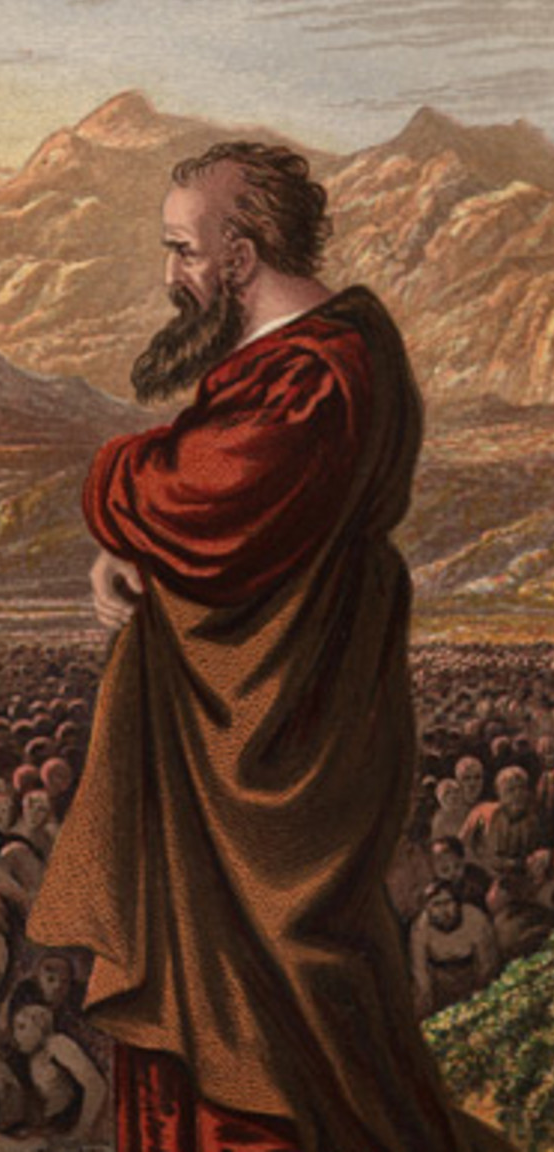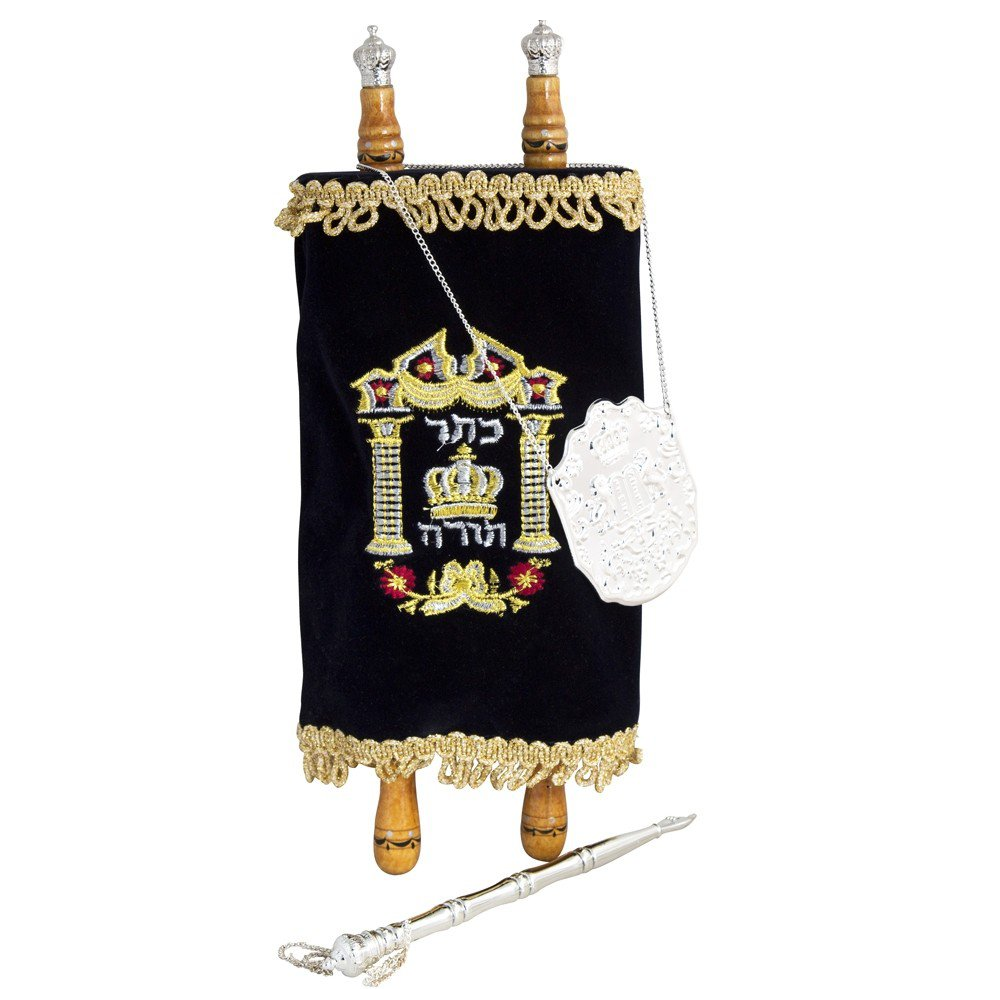|
Weekly Parashah |
|||||
| Torah: Num. 22:2–25:9 | Haftara: Micah 5 : 6 – 6 : 8 | Brith Chadashah: Mark 11 : 12 – 26 Romans 11 : 25 – 32 |
|||
|
Balak (Destroyer) בָּלָק |
|||||
Scripture: |
Numbers 22:2 - 25:9
|
Torah |
|||
|
|
2 When Balak son of Zippor, realized all that Bnei-Yisrael had done to the Amorites, 3 Moab became terrified because there were so many people. Moab was filled with dread because of Bnei-Yisrael. 4 Moab said to the elders of Midian, “The multitude will lick up everything around us like the ox licks up the grass of the field.” Now Balak son of Zippor was king of Moab at that time. 5 He sent messengers to summon Balaam son of Beor, at Pethor near the River[a] in his native land, saying to him, “Look now, a people has come out of Egypt. See now, they cover the surface of the earth and are settling beside me. 6 Come now, curse this people for me, because they are too strong for me! Perhaps I may be able to defeat them and drive them away from the country. I know that whoever you bless will be blessed and whoever you curse will be accursed!” 7 The elders of Moab and Midian left with divination fees in their hand. When they came to Balaam, they told him Balak’s words. 8 He said to them, “Spend the night here. I will give you an answer just as Adonaispeaks to me.” So the officials of Moab stayed with Balaam. 9 God came to Balaam and asked, “Who are these men with you?” 10 Balaam said to God, “Balak son of Zippor, king of Moab, sent word to me: 11 See, the people coming out of Egypt cover the surface of the land. Come now, curse them for me. Perhaps I will be able to fight against them and drive them away!” 12 God said to Balaam, “Do not go with them! Do not curse them, for they are blessed!” https://www.biblegateway.com/passage/?search=Num.+22%3A2%E2%80%9325%3A9&version=TLV |
||||
Scripture: |
Micah 5 : 6 – 6 : 8
|
Haftarah |
|||
The Remnant of Jacob6 Now the remnant of Jacob will be https://www.biblegateway.com/passage/?search=Mic.+5%3A6%E2%80%936%3A8&version=TLV |
 |
||||
Scripture: |
Mark 11 : 12 – 26
|
Brit Chadashah |
|||
|
|
The Fruit of the Faithful12 The next day, when they had left Bethany, He became hungry. 13 Seeing from a distance a fig tree in leaf, He went to see if He would find any fruit on it. When He came up to it, He found nothing except leaves, because it wasn’t the season for figs. 14 And He said to it, “May no one ever eat fruit from you again!” And His disciples were listening. 15 Then they came to Jerusalem. And He entered the Temple and started to drive out those selling and buying in the Temple. He overturned the tables of the moneychangers and the seats of those selling doves, 16 and He wouldn’t let anyone carry goods through the Temple. 17 And He began to teach them, saying, “Is it not written, ‘My house shall be called 18 The ruling kohanim and Torah scholars heard this and began looking for a way to destroy Him; for they were afraid of Him, because the whole crowd was astonished at His teaching. 19 Whenever evening came, Yeshua and His disciples would leave the city. 20 As they were passing by in the morning, they saw the fig tree shriveled from the roots. 21 Peter remembered and said to Yeshua, “Rabbi, look! The fig tree You cursed has shriveled up!” 22 And Yeshua answered, saying to them, “Have faith in God! https://www.biblegateway.com/passage/?search=Mk.+11%3A12%E2%80%9326+&version=TLV Romans 11 : 25 – 32The Mystery Revealed!25 For I do not want you, brothers and sisters, to be ignorant of this mystery—lest you be wise in your own eyes[a]—that a partial hardening has come upon Israel until the fullness of the Gentiles has come in; [b] 26 and in this way[c] all Israel will be saved, as it is written, “The Deliverer shall come out of Zion. 28 Concerning the Good News, they are hostile for your sake; but concerning chosenness, they are loved on account of the fathers[f]— 29 for the gifts and the calling of God are irrevocable. [g] 30 For just as you once were disobedient to God but now have been shown mercy because of their disobedience, 31 in like manner these also have now been disobedient with the result that, because of the mercy shown to you, they also may receive mercy. 32 For God has shut up all in disobedience, so that He might show mercy to all. https://www.biblegateway.com/passage/?search=Romans+11%3A25-32&version=TLV |
||||
Parashah in 60 seconds |
|||||
| https://youtu.be/3m6SixkQGQc | |||||
00 The reason to write my Theology
The Importance of Theological Underpinning in Pastoral Teachings: A Comprehensive Perspective
Introduction
Within Article Zero of the series on theology, I would like to introduce the reason for this writing.
Theology, the study of the divine and religious beliefs, practices, and experiences, is the backbone of any religious teaching. For a pastor, the theological ground from which he or she teaches is not just a matter of personal belief but a guiding principle that shapes the congregation's spiritual life. This article explores why it is essential for a pastor to provide this theological underpinning for the congregation and the importance of prayer, preparation, and making it publicly available.
Part I: The Significance of Theological Underpinning
1. Consistency and Clarity in Teaching
-
Ensures teachings are consistent with core beliefs.
-
Provides a clear framework for interpretation and application.
2. Personal Integrity and Authenticity
-
Fosters integrity and authenticity.
-
Builds trust in spiritual guidance.
3. Cultural and Contextual Relevance
-
Ensures guidance is relevant and meaningful.
-
Recognizes unique needs and challenges.
4. Fostering Spiritual Growth
-
Provides a roadmap for spiritual development.
-
Encourages deeper exploration and engagement.
5. Unity and Community Building
-
Promotes unity within the congregation.
-
Avoids divisions and conflicts.
Part II: The Imperative of Prayer, Preparation, and Public Availability
Prayer: Seeking Divine Guidance
-
Aligns theological beliefs with God's will.
-
Opens the heart and mind to divine revelation.
Preparation: Crafting a Thoughtful Framework
-
Ensures a well-thought-out and comprehensive understanding.
-
Demonstrates responsibility and accountability.
Public Availability: Transparency and Accessibility
-
Fosters transparency and builds trust.
-
Makes information accessible to all.
-
Serves as an educational resource.
Conclusion
The theological ground from which a pastor teaches is a vital aspect of spiritual leadership. It provides consistency, fosters integrity, ensures relevance, promotes spiritual growth, and builds community. Defining and sharing this theological underpinning is a sacred task that requires prayer, preparation, and a commitment to public availability.
In a world where individual perspectives and interpretations can vary widely, and spiritual guidance is often sought and scrutinized, these principles serve as a compass, guiding both the pastor and the congregation toward a shared understanding of their faith. It is a reflection of the pastor's commitment to the spiritual well-being of the community he or she serves, and a testament to the profound responsibility that comes with the calling.
By understanding and articulating this theological foundation, a pastor can lead with clarity, authenticity, and relevance, nurturing a faith community that is united, engaged, and growing in their spiritual journey. It underscores the multifaceted role that theological underpinning plays in pastoral teachings, reflecting the complexity and significance of the pastor's role in guiding and nurturing the faith community.









